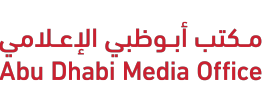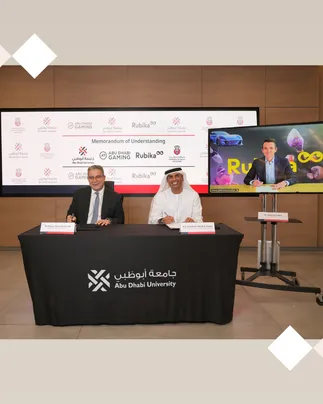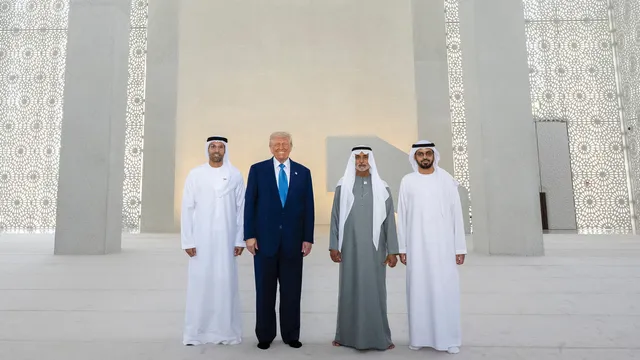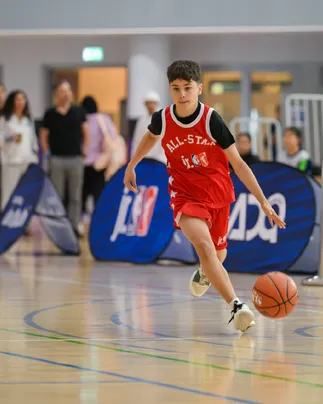The Abu Dhabi Arabic Language Centre (ALC), part of the Department of Culture and Tourism - Abu Dhabi (DCT Abu Dhabi), has opened the nomination period for the second edition of its ‘Kanz Al Jeel’ Award, which honours works of Nabati poetry, folk studies, and research.
The award is given to poets and researchers who have created works related to Nabati poetic heritage. It aims to promote distinguished poetic works and recognise the creative minds behind them, in an effort to strengthen pride in cultural identity and more closely connect younger generations with their artistic heritage.
Candidates can submit their applications to any of the award’s six categories: Poetry Matching (with a poem by the late Sheikh Zayed bin Sultan Al Nahyan, Founding Father of the UAE), Creative Personality, Arts, Studies and Research, Poetic Publications, and Translation.
The ‘Kanz Al Jeel’ Award offers a total prize pool of AED1.5 million, and applications can be submitted on the website: kanzaljeel.ae. The deadline for applications for the second edition is 1 June 2023.
HE Dr. Ali bin Tamim, Chairman of the ALC, said: “Poetry has borne witness to the remarkable journey the country has embarked upon since the establishment of the union by our Founding Father, the late Sheikh Zayed bin Sultan Al Nahyan. The Abu Dhabi Arabic Language Centre launched the ‘Kanz Al Jeel’ Award to support creativity in the field of Nabati poetry and promote this art form more widely, recognising its important role in preserving Emirati and Arab heritage.
Nabati poetry’s is an integral element of the identity and cultural memory of the UAE community, and it is our hope that the younger generations are inspired to engage with it more closely.”
Issa Saif Al Mazrouei, Vice Chairman of Abu Dhabi’s Cultural, Heritage Programmes, and Festivals Management Committee, and Chairman of the ‘Kanz Al Jeel’ Award’s Higher Committee, said: “In its inaugural edition, launched last year, the ‘Kanz Al Jeel’ Award inspired countless Nabati poetry specialists and promoted Emirati folklore by celebrating Emirati and Arab creators and honouring their research that delved deeper into the field, documenting its rich history and the various stages of its development.”
“The award’s second edition focuses on fulfilling its main objective to establish an inspiring poetic, artistic, and critical movement based on the distinct poetic style of the late Sheikh Zayed bin Sultan Al Nahyan,” Al Mazrouei added. “It also strives to connect generations of young people with their Emirati heritage and promote values of belonging to the UAE and a sense of pride in its rich heritage. We are confident that the award will be receiving more entries this year and from all around the world.”
The ‘Kanz Al Jeel’ Award has set general criteria for nominees, where nominations for the ‘Literary Figure’ category must come through academic, research, and cultural institutions, or the Higher Committee of the award. As for the remaining five categories, nominations are open for talented individuals, literary unions, cultural institutions, universities, and publishing houses.
Potential candidates also need to have actively contributed to enriching local and Arab poetic, critical, or artistic movements. Furthermore, nominated works must boast a high degree of originality and innovation, constituting a significant addition to human culture and knowledge.
Each candidate can submit only one work to one of the award’s categories. A nominated work cannot be submitted for another award in person or by proxy in the same year, and the award cannot be granted to a work that has previously won an Arab award or any major awards in other languages. Furthermore, nominated works must be written in Arabic, with the exception of the Translation category, where the award is given to poems translated from Arabic into other languages, and studies may be submitted in other living languages.
Submitted works must contain an International Standard Book Number (ISBN) to ensure property rights. Poetry and research must be published to be considered, while translation works could be either published or in a manuscript form, where the copyright for the manuscripts is owned by the award. The award has the right to publish advanced works as it deems appropriate after having studied and committed to the extent of its applicability.
Meanwhile, individuals and institutions can apply to the Arts category according to the field of art approved by the Commission in each edition, which in this year’s edition is Arabic calligraphy. Participating artists are required to use one of the late Sheikh Zayed’s poems and incorporate it in an Arabic calligraphy work. A winner will be eligible to apply for the award again five years after winning.
The award in the Poetry Matching category will go to the poem that most closely matches Sheikh Zayed’s poem, where participants must write a poem that matches its rhythm, rhyme, subject, and number of verses. Meanwhile, the Creative Personality category of the award will be granted to a candidate who has made outstanding and effective creative contributions to Nabati poetry and affiliated studies, as well as to music, singing, drawing, and Arabic calligraphy.
The Arts category considers works of art that use visual tools to read, perform, and embody Sheikh Zayed’s poetry and Nabati poetry in general. These include Arabic calligraphy and plastic art. Meanwhile, the Studies and Research award is granted to published research studies on Nabati poetry, which scientifically address the methods, content, and lexicon of this poetry.
In the fifth category, Poetic Publications, recognises Nabati poetry books that are authentic in both form and content and constitute a notable addition to this poetic field, while the sixth and final category, Translation, considers complete poetry collections, translated from Arabic to other languages, both published and in manuscript form, where the copyright for the manuscripts is owned by the award.







